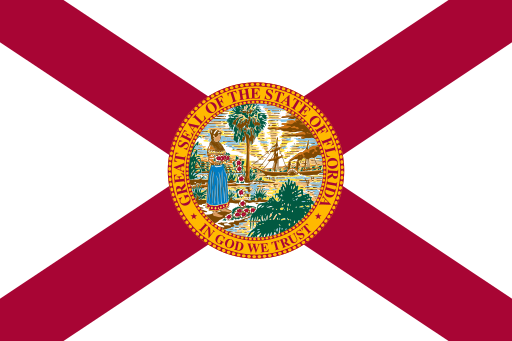Floridians Protecting Freedom has submitted 911,169 valid signatures to place an initiative on the Nov. 2024 ballot that would prohibit any state laws that restrict, delay, penalize, or ban abortion before fetal viability.
To qualify for the ballot, 891,523 valid signatures (equal to 8% of the total votes cast in the last presidential election) were required. The campaign reported submitting 1.4 million raw signatures in total. Florida has a signature distribution requirement, meaning signatures equaling at least 8% of the district-wide vote in the last presidential election be collected from at least half (14) of the state's 28 congressional districts. The Florida Division of Elections count showed that, as of Jan. 5, the campaign had reached the signature requirement in 17 of the 28 counties.
The amendment will appear on the 2024 ballot in Florida if the state Supreme Court approves of the measure's ballot language. As part of Florida's initiative process, the attorney general is required to petition the Florida Supreme Court for an advisory opinion on the measure's compliance with the single-subject rule, the appropriateness of the title and summary, and whether or not the measure "is facially invalid under the United States Constitution." The Supreme Court is scheduled to hear arguments in the case on Feb. 7, 2024.
The ballot summary for the initiative states, "No law shall prohibit, penalize, delay, or restrict abortion before viability or when necessary to protect the patient’s health, as determined by the patient’s healthcare provider. This amendment does not change the Legislature’s constitutional authority to require notification to a parent or guardian before a minor has an abortion."
On Oct. 31, 2023, Florida Attorney General Ashley Moody (R) filed a brief with the Florida Supreme Court arguing that the initiative should be blocked from appearing on the 2024 ballot, saying that the ballot summary "vastly understates the potentially sweeping scope of the amendment, by failing to explain what 'viability,' 'health,' or 'healthcare provider' means, and by not disclosing that a 'healthcare provider' might have power to determine when a baby is viable," and that "the potential misinterpretations of the amendment would allow a healthcare provider to render nearly any abortion restriction a practical nullity."
Groups that have filed briefs with the court opposing the initiative include the Susan B. Anthony Pro-Life America, the Florida Conference of Catholic Bishops, and Florida Voters Against Extremism.
Briefs opposing the challenge were filed by initiative sponsors Floridians Protecting Freedom and supporters of the measure, which include the American College of Obstetricians and Gynecologists, Florida doctors, and former Florida Republican elected officials.
Floridians Protecting Freedom said, "Floridians across the political spectrum believe that the people of Florida should be the ones deciding this issue, not politicians. Mainstream Floridians do not want extreme abortion bans. Our initiative will ensure that the decision to have an abortion belongs to Floridians, their families, and those they trust – not politicians.”
Smart and Safe Florida, supporters of an initiative to legalize recreational marijuana, have also submitted enough valid signatures to qualify for the 2024 ballot and are awaiting state supreme court approval of ballot language. Attorney General Ashley Moody argued that the initiative's ballot language is also misleading.
Since the U.S. Supreme Court’s decision in Dobbs v. Jackson Women’s Health Organization in 2022, which overruled Roe v. Wade, seven abortion-related ballot measures have appeared on statewide ballots. In 2022, there were six ballot measures addressing abortion — the most on record for a single year. In Nov. 2023, voters in Ohio approved an initiative to provide a state constitutional right to abortion.
On Nov. 5, 2024, voters in New York will decide on a constitutional amendment to prohibit the denial of rights to an individual based on their "pregnancy, pregnancy outcomes, and reproductive healthcare and autonomy," along with other classes like ethnicity, disability, age, and sex. Voters in Maryland will decide on an amendment to establish a right to reproductive freedom, defined to include abortion, in the state constitution at the general election in 2024.
Ballot measures related to abortion have been proposed in 10 other states targeting the 2024 ballot.

Additional reading:



